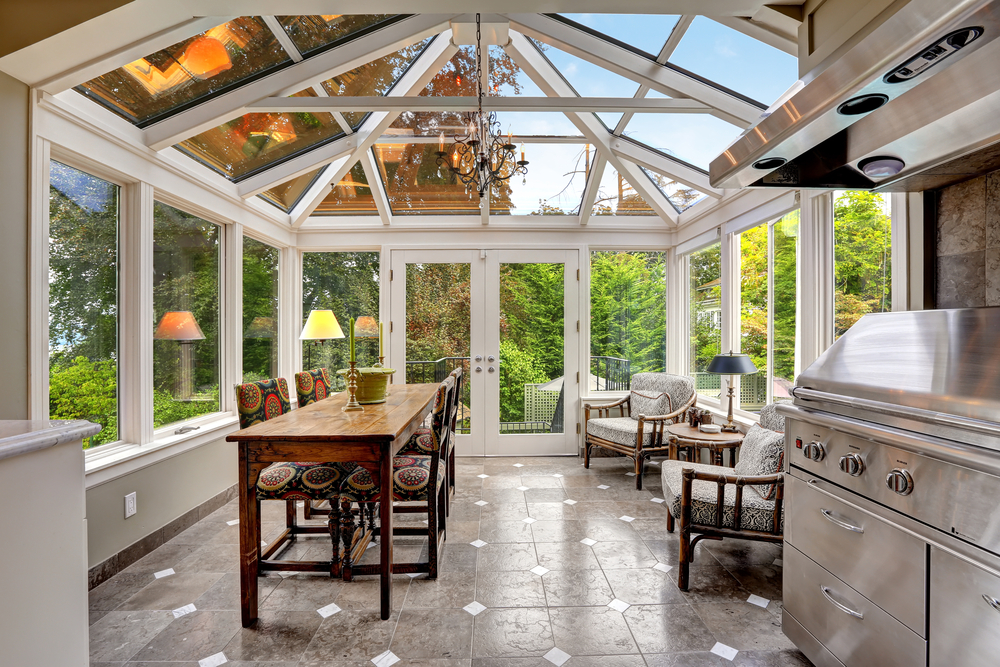Find HVAC Repair Services Near You
Discover the four main types of HVAC systems, how to identify yours, the benefits of regular maintenance, common problems and repair costs, and how to find reliable HVAC repair services near you. Click the link below to learn more.
Heating, Ventilation, and Air Conditioning (HVAC) systems are crucial for maintaining comfortable indoor environments in homes and businesses. Understanding the different types of HVAC systems, their maintenance needs, and how to handle common issues can help you keep your system running efficiently.
This guide will walk you through the four main types of HVAC systems, how to identify which one you have, the services offered by HVAC repair companies, the benefits of regular maintenance, common problems and their repair costs, and tips for finding reliable HVAC repair services near you.
Heating, Ventilation, and Air Conditioning (HVAC) systems are essential for creating comfortable living and working environments. With a variety of options available, it's important to understand the main types of HVAC systems to determine which best suits your needs. Here, we explore the four primary types: Split System, Hybrid Split System, Duct-Free Mini-Split, and Packaged System.
Exploring the 4 Main Types of HVAC Systems

1. Split System
Components: A Split System consists of two main components: an indoor unit and an outdoor unit. The indoor unit usually contains the furnace or air handler and the evaporator coil, while the outdoor unit houses the condenser and compressor.
How It Works: This system uses refrigerant to absorb and release heat, effectively cooling and heating your home. The indoor unit manages airflow and humidity, distributing conditioned air through the ductwork. The outdoor unit releases the absorbed heat in summer or extracts heat from the outside air in winter (in the case of a heat pump).
Best For: Split systems are ideal for homes with existing ductwork. They are a popular choice for those seeking efficient and reliable solutions for both heating and cooling. Their separate components allow for versatile placement and easy maintenance.
2. Hybrid Split System
Components: Similar to the traditional Split System, the Hybrid Split System includes both an indoor and an outdoor unit. The key difference is the addition of a heat pump that can switch between gas and electric power.
How It Works: The heat pump in a Hybrid Split System can utilize electricity to move heat rather than generating it, which can be more energy-efficient. This system can switch between gas (for colder climates) and electric power (for milder conditions), optimizing for both performance and cost-efficiency.
Best For: This system is perfect for energy-conscious homeowners who want to minimize their heating and cooling costs. It’s especially beneficial in regions with fluctuating energy prices or mild winters where the electric heat pump can handle most of the heating load efficiently.
3. Duct-Free Mini-Split
Components: The Duct-Free Mini-Split system consists of an outdoor compressor unit connected to one or more indoor air handling units. Each indoor unit is equipped with its own thermostat and is controlled independently.
How It Works: Unlike systems that rely on ductwork to distribute air, the mini-split system delivers conditioned air directly to each zone or room. This makes it possible to set different temperatures for different areas, providing personalized comfort and improved energy savings.
Best For: This system is ideal for homes or buildings without existing ductwork or where duct installation is impractical. It’s a popular choice for renovations, additions, or rooms that need specific climate control. It’s also a great solution for improving energy efficiency by allowing for precise temperature adjustments in individual spaces.
4. Packaged System
Components: A Packaged System combines all the components necessary for heating and cooling into a single unit. This unit is typically installed outside the home or on the roof, encompassing the evaporator, condenser, and compressor in one compact cabinet.
How It Works: Packaged systems are designed to provide both heating and cooling, with air circulated through a network of ducts. These systems are compact and self-contained, simplifying installation and maintenance.
Best For: Packaged systems are commonly used in small commercial buildings or homes with limited indoor space. Their compact nature makes them an excellent choice for environments where a single, space-saving unit is advantageous.
How To Know Which Type You Have
To identify your HVAC system type:
- Locate the Indoor and Outdoor Units: Check if you have separate indoor and outdoor units (Split/Hybrid Split) or a single packaged unit outside.
- Look for Ducts: Determine if your home has ductwork running through the walls and ceilings (Split/Hybrid Split/Packaged) or if individual units are mounted on walls (Duct-Free Mini-Split).
- Check the Controls: Duct-free systems typically have individual remote controls for each unit, while central systems are usually controlled by a thermostat.
Services Offered by HVAC Repair Companies
HVAC repair companies provide a variety of services to keep your system running smoothly:
- Installation and Replacement: Installing new HVAC systems or replacing old, inefficient units.
- Routine Maintenance: Regular check-ups and tune-ups to ensure optimal performance and longevity.
- Repairs: Fixing broken components, addressing system failures, and troubleshooting issues.
- Duct Cleaning and Sealing: Cleaning and sealing ducts to improve air quality and system efficiency.
- Thermostat Installation and Repair: Upgrading or fixing thermostats to enhance control over your HVAC system.
- Emergency Services: 24/7 support for urgent HVAC problems.
Benefits of Regular Maintenance and Repairs
- Improved Efficiency: Regular maintenance keeps your system running efficiently, reducing energy consumption and lowering utility bills.
- Extended Lifespan: Routine check-ups and timely repairs can extend the life of your HVAC system, delaying the need for costly replacements.
- Enhanced Comfort: Well-maintained systems provide consistent and reliable heating and cooling, ensuring comfort in all seasons.
- Better Air Quality: Clean and serviced systems reduce the circulation of dust, allergens, and pollutants, improving indoor air quality.
- Reduced Risk of Breakdowns: Proactive maintenance helps identify and fix small issues before they become major problems, preventing unexpected breakdowns.
Common HVAC Problems and Their Average Costs to Repair
-
Refrigerant Leaks:
- Symptoms: Reduced cooling efficiency, higher electricity bills, and longer cooling cycles.
- Cost: $200 - $1,500, depending on the severity of the leak and the amount of refrigerant needed.
-
Faulty Thermostat:
- Symptoms: Inconsistent temperatures, system not turning on/off as programmed.
- Cost: $100 - $300 for repairs; $150 - $500 for replacement with a modern thermostat.
-
Clogged Filters:
- Symptoms: Reduced airflow, increased energy usage, and poor air quality.
- Cost: $75 - $200, including cleaning and replacement of filters.
-
Blower Motor Issues:
- Symptoms: Weak or no airflow from vents, strange noises, or the system not running.
- Cost: $150 - $700 for repairs; up to $1,500 for motor replacement.
-
Frozen Evaporator Coils:
- Symptoms: Reduced cooling performance, ice buildup on coils, or water leaks around the unit.
- Cost: $200 - $1,000, depending on the cause and extent of the issue.
-
Ignition or Pilot Control Problems:
- Symptoms: Furnace not starting, uneven heating, or unusual noises during startup.
- Cost: $150 - $400 for repairs; $300 - $1,200 for replacement parts.
How To Find HVAC Repair Near You
Finding reliable HVAC repair services near you is crucial for maintaining a comfortable and efficient home. Here are some steps to find the best providers:
- Online Search: Use search engines to find local HVAC repair companies. Look for reviews, ratings, and detailed service information.
- Directory Listings: Check online directories like Yelp, Angie's List, or the Better Business Bureau for reputable companies in your area.
- Ask for Recommendations: Talk to friends, family, or neighbors who have had HVAC work done recently and ask for their recommendations.
- Check Credentials: Ensure the company is licensed, insured, and certified by relevant industry organizations.
- Request Quotes: Contact multiple companies to get quotes and compare their services, prices, and customer feedback.
- Evaluate Customer Service: Choose a company that offers responsive customer service, clear communication, and a willingness to answer your questions.
Top Players in HVAC Repair and Current Promotions
-
Carrier:
- Known for high-quality HVAC products and services.
- Current Promo: Seasonal discounts on maintenance packages and new system installations.
-
Lennox:
- Offers comprehensive repair and maintenance services with a focus on energy-efficient systems.
- Current Promo: Rebates and financing options on new HVAC systems and upgrades.
-
Trane:
- Provides reliable HVAC repair services and advanced heating and cooling solutions.
- Current Promo: Special offers on repair services and extended warranties for new systems.
-
Service Experts:
- A nationwide provider of HVAC repair, maintenance, and installation services.
- Current Promo: Discounts on seasonal tune-ups and comprehensive maintenance plans.
-
One Hour Heating & Air Conditioning:
- Offers 24/7 HVAC repair services with a commitment to punctuality and customer satisfaction.
- Current Promo: Savings on emergency repair services and first-time customer discounts.
Conclusion
Understanding the different types of HVAC systems, their maintenance needs, and how to find reliable repair services can help you maintain a comfortable and efficient home. Regular maintenance not only enhances your system's performance but also prolongs its lifespan and improves air quality. When issues arise, knowing the average repair costs and how to find trustworthy HVAC repair providers can save you time and money. Whether you're dealing with a common problem or looking for a new system, this guide equips you with the knowledge to make informed decisions about your HVAC needs.










